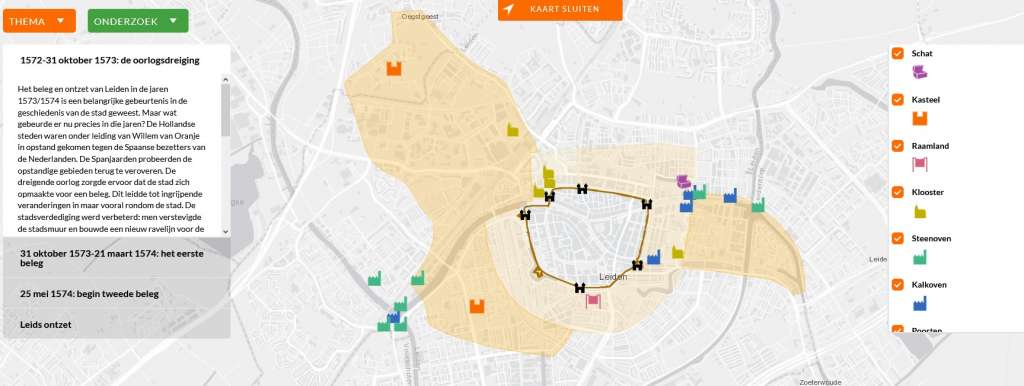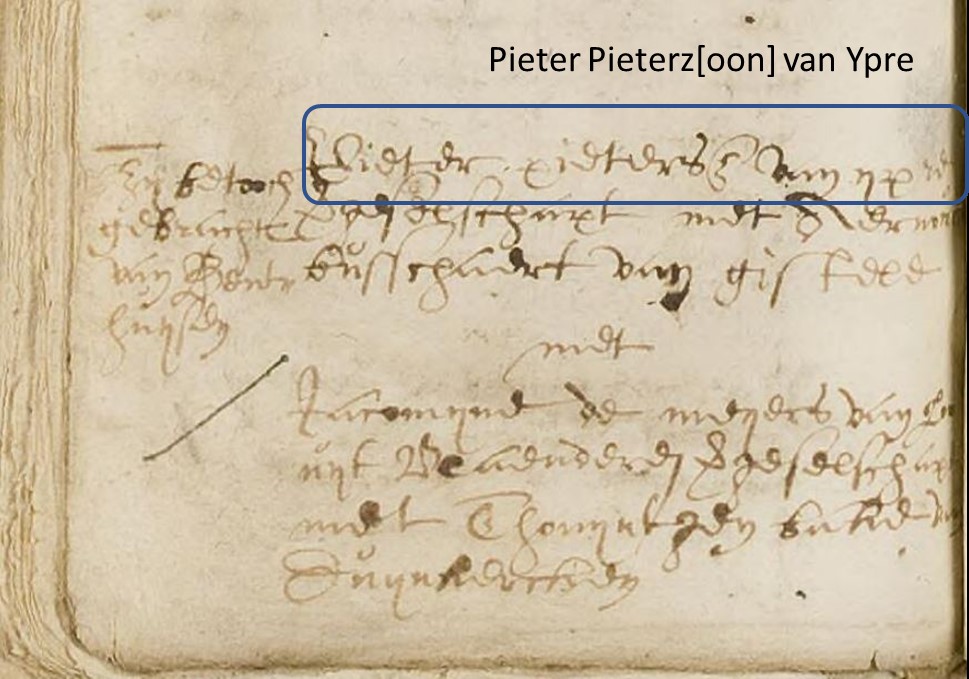One of the benefits of the digital era is that the past is more and more accessible in digital applications. In this blog I want to illustrate this with some examples, mostly for the case of the city of Leiden.
For my lecture on socio-economic history I have to write an article based on primary sources from the city-archive of Leiden. Leiden has an impressive archive on the city history and many of the sources are digitized already. The assignment for this week was to stroll through the digital archive and getting to know it. Well, I was impressed by the scope of the archive and the way they present their collection. So I thought this to be a fitting subject for my blog.
You can find there of course the archives with old documents but also old pictures of the city of Leiden. This year there is special attention for the house where Rembrandt was born with a virtual tour and for the pilgrim fathers with a virtual impression of Leiden at the time of the Pilgrims who left Leiden exact 400 years ago.

A nice digital application is the display of archaeological treasures in 3D. There are some of the most important findings from Leiden that you can rotate, turn and zoom so you have a view on the artefacts from all sides.
Under education you can find another interesting digital application. One of the many educational projects is a CSI project where students of secondary education can engage to solve a crime from history. When they have solved the crime, they can present their results in a short video.
For who is interested in GIS systems can spend a lot of time at the menu item “Erfgoed in kaart” (Heritage map). You can see a beautiful application with many thematic maps of Leiden from the Roman era until the present day. Not the most impressive but an actual example is how you can follow on several maps the events of “Leidens Ontzet” (Liberation of Leiden) in 1574 (on 3 October is the yearly celebration, probably not this year). Unfortunately most explanations are only in Dutch.

There is also many genealogical material. One of my relatives has made a family tree and with the help of it I could easily find in the archives the marriage certificate from 1584 of my granddad 15 generations back in time.

You must have followed a lecture to learn how to read this old handwritings but it is still amazing that you are able to find such old documents.
This illustrates how many work it will be to really open up digitally this archives. Scanning, reading and transcribing this old documents is mostly work of volunteers and it will take many decades to complete this immense task. But luckily there are developments from artificial intelligence that can simplify this task. With machine learning old chronicles can be translated to for example XML-files. A most interesting part of digital humanities.
There is already an app from the University of Innsbruck that you can download and with this application you can generate training data how the Transkribus application can transcribe your documents: https://transkribus.eu/Transkribus/ It takes about 100 examples before the system gives good results. But developments run fast and the technique is improved every year.

I guess I will spend a lot of time in the archives the coming months. I can recommend to visit their website at: https://www.erfgoedleiden.nl/
——————————————————————–


What a wonderful subject for a blog post! I have to confess I had not heard of any of the applications mentioned here – but I am so glad I know of them now. During reading this post online I spend at least 1 full hour clicking and zooming through the applications you mentioned here. Guess I’ll be spending some more time in the archives as well 😉
This was such an interesting blog to read! I really enjoyed how this was specific to the city of Leiden, and it was also interesting to read of your own experience with archives, your study and also your experience of these technologies. I think you also explained these technologies in a practical and easy to understand way, as well as framing them in a specific context i.e. the city of Leiden and also your study. Overall a really insightful and informative read!